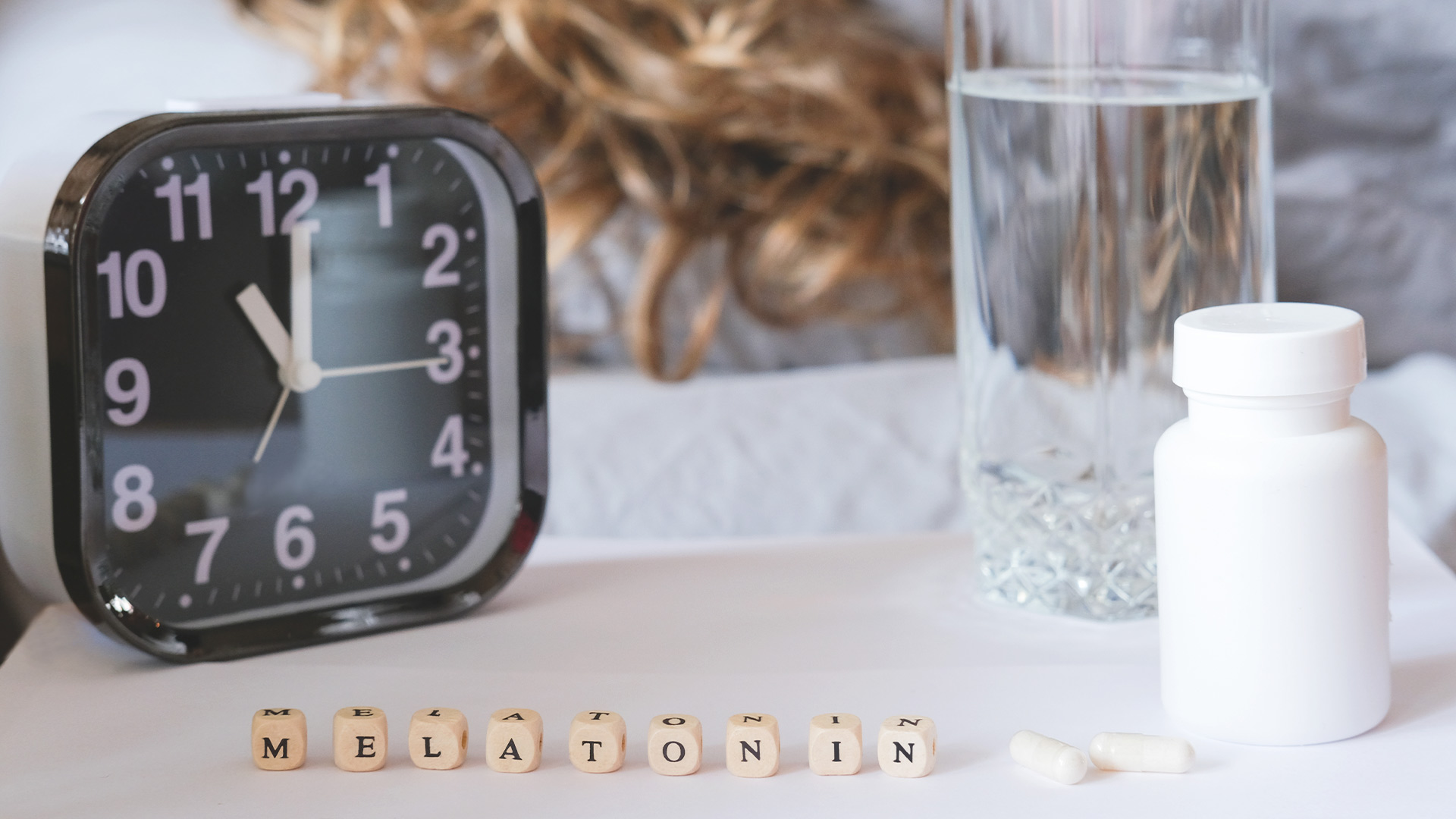Melatonin and Anti-Aging: Does Sleep Hormone Have More Benefits Than We Think?
Melatonin is often thought of solely as a sleep aid, but its benefits extend far beyond that. As an antioxidant and anti-inflammatory agent, melatonin plays a vital role in protecting your skin, supporting cognitive function, and promoting overall vitality.

When we think about melatonin, the first thing that often comes to mind is sleep. Known as the "sleep hormone," melatonin plays a crucial role in regulating our sleep-wake cycle, helping us fall asleep and stay asleep. But did you know that melatonin may have more to offer than just a good night’s rest? Recent research suggests that melatonin could also have significant anti-aging benefits, promoting healthier skin, boosting immunity, and protecting against age-related diseases.
In this article, we’ll explore how melatonin works, its role in the aging process, and whether this sleep hormone could be the secret to aging more gracefully.
What Is Melatonin and How Does It Work?
Melatonin is a hormone produced by the pineal gland, which is located in the brain. It helps regulate the body’s circadian rhythm, which is essentially the internal clock that controls when we sleep and wake up. Melatonin production typically increases in the evening, signaling to the body that it’s time to rest, and decreases in the morning, helping us wake up and feel alert.
In addition to its role in sleep, melatonin is also an antioxidant, meaning it helps neutralize free radicals – the unstable molecules that can damage cells and accelerate the aging process. It’s this antioxidant activity that has led scientists to explore melatonin’s potential benefits for anti-aging.
The Anti-Aging Benefits of Melatonin
1. Protecting the Skin from Damage
One of the most visible signs of aging is the condition of our skin. As we age, our skin becomes thinner, loses elasticity, and shows more wrinkles and fine lines. Environmental factors like UV radiation, pollution, and free radical damage contribute to these changes by breaking down collagen and accelerating skin aging.
Melatonin’s powerful antioxidant properties help protect the skin from oxidative stress caused by free radicals and UV radiation. Studies have shown that melatonin can help repair damaged skin cells, reduce inflammation, and enhance skin barrier function. By acting as a shield against environmental damage, melatonin helps maintain healthy, youthful-looking skin for longer.
Real Example: Gisele Bündchen, the supermodel known for her radiant skin, is a fan of melatonin supplements. She has shared that she uses melatonin as part of her skincare regimen to promote skin health and protect against the aging effects of environmental stressors.
2. Boosting Collagen Production
Collagen is the protein that gives skin its firmness, smoothness, and elasticity. As we age, collagen production naturally slows down, leading to the formation of wrinkles and sagging skin. Some studies suggest that melatonin can actually stimulate collagen production, which helps keep the skin looking plump, smooth, and youthful.
Melatonin’s ability to support collagen synthesis can also help with skin rejuvenation, especially when used in combination with other anti-aging treatments like retinoids or Vitamin C. This means that melatonin can play a role not just in protecting the skin but in promoting its regeneration as well.
3. Reducing Inflammation and Skin Aging
Chronic inflammation is one of the main contributors to premature aging. It accelerates the breakdown of skin structures like collagen and elastin, leading to wrinkles and sagging. Melatonin’s anti-inflammatory properties help regulate the immune response and reduce the production of pro-inflammatory molecules in the body.
By reducing inflammation, melatonin helps slow down the skin aging process, preserving the skin’s appearance and health for longer. This is especially important for those dealing with inflammatory skin conditions like rosacea or eczema, as melatonin can help soothe irritated skin and restore balance.
4. Improving Sleep Quality for Better Skin
It’s no secret that sleep plays a crucial role in how we look and feel. When we sleep, our bodies undergo important repair processes, including the regeneration of skin cells. Growth hormone, which is essential for tissue repair, is released during deep sleep, helping to restore the skin’s natural barrier and promote collagen production.
Melatonin is key to ensuring that we get a restful night’s sleep, allowing the body to repair and regenerate properly. When melatonin levels are disrupted (for example, due to stress or jet lag), sleep quality suffers, which in turn can affect skin health and lead to signs of premature aging.
By promoting better sleep, melatonin indirectly helps the skin regenerate and repair itself more effectively. So, if you’re getting good sleep thanks to melatonin, you’re already giving your skin a natural boost.
5. Supporting Brain Health and Cognitive Function
Aging isn’t just about how we look – it’s also about how we feel. Cognitive decline is one of the biggest concerns as we age, and studies suggest that melatonin’s antioxidant and anti-inflammatory properties can help protect brain cells from oxidative damage. By reducing oxidative stress and inflammation in the brain, melatonin can help preserve cognitive function and delay the onset of age-related conditions like Alzheimer's and dementia.
Melatonin’s ability to improve sleep quality also contributes to better cognitive function. Sleep is essential for memory consolidation and brain health, and melatonin’s role in regulating the sleep-wake cycle can help keep your mind sharp as you age.
How to Incorporate Melatonin into Your Anti-Aging Routine
If you’re interested in using melatonin for its anti-aging benefits, there are a few ways you can incorporate it into your routine:
1. Melatonin Supplements
Melatonin supplements are widely available and can be taken in pill, liquid, or gummy form. The recommended dose typically ranges from 0.5 to 5 milligrams, depending on your needs and sensitivity. It’s best to take melatonin about 30 minutes before bed to help regulate your sleep-wake cycle.
Keep in mind that while melatonin is generally safe for short-term use, long-term supplementation should be discussed with a healthcare provider to ensure it’s appropriate for your individual needs.
2. Melatonin-Infused Skincare Products
Some skincare brands have begun infusing melatonin into their products, such as serums and night creams, to help combat skin aging. These products aim to leverage melatonin’s antioxidant and anti-inflammatory properties to protect the skin from environmental damage and improve overall skin health. Using these products as part of your nighttime skincare routine can enhance the natural repair processes that occur while you sleep.
3. Establish a Healthy Sleep Routine
Aside from supplements or topical products, the most natural way to benefit from melatonin’s anti-aging effects is by prioritizing good sleep hygiene. Establishing a healthy sleep routine is key for maintaining hormonal balance, promoting skin regeneration, and supporting overall health. Here are a few tips:
- Stick to a consistent sleep schedule by going to bed and waking up at the same time every day. - Create a relaxing bedtime routine that includes winding down activities like reading or listening to calming music. - Keep your sleep environment dark, cool, and quiet to encourage the production of natural melatonin.
Melatonin as a Powerful Anti-Aging Ally
Melatonin is often thought of solely as a sleep aid, but its benefits extend far beyond that. As an antioxidant and anti-inflammatory agent, melatonin plays a vital role in protecting your skin, supporting cognitive function, and promoting overall vitality. By improving sleep quality, stimulating collagen production, and reducing inflammation, melatonin can help slow down the aging process and keep you feeling youthful for longer.
Whether through supplements, topical products, or a consistent sleep routine, melatonin is a natural ally in the fight against aging. So, next time you think about how to maintain your youthful glow, don’t forget about this powerful hormone – it might just be the key to aging gracefully.


